Organic Potatoes
Full Member
I'm still surprised people thought retaking Mosul would be a simple task.
So no #SaveMosul campaign? Where are all these western politicians and showbiz celebrities with their crocodile tears about Aleppo kids? fecking hypocrites.
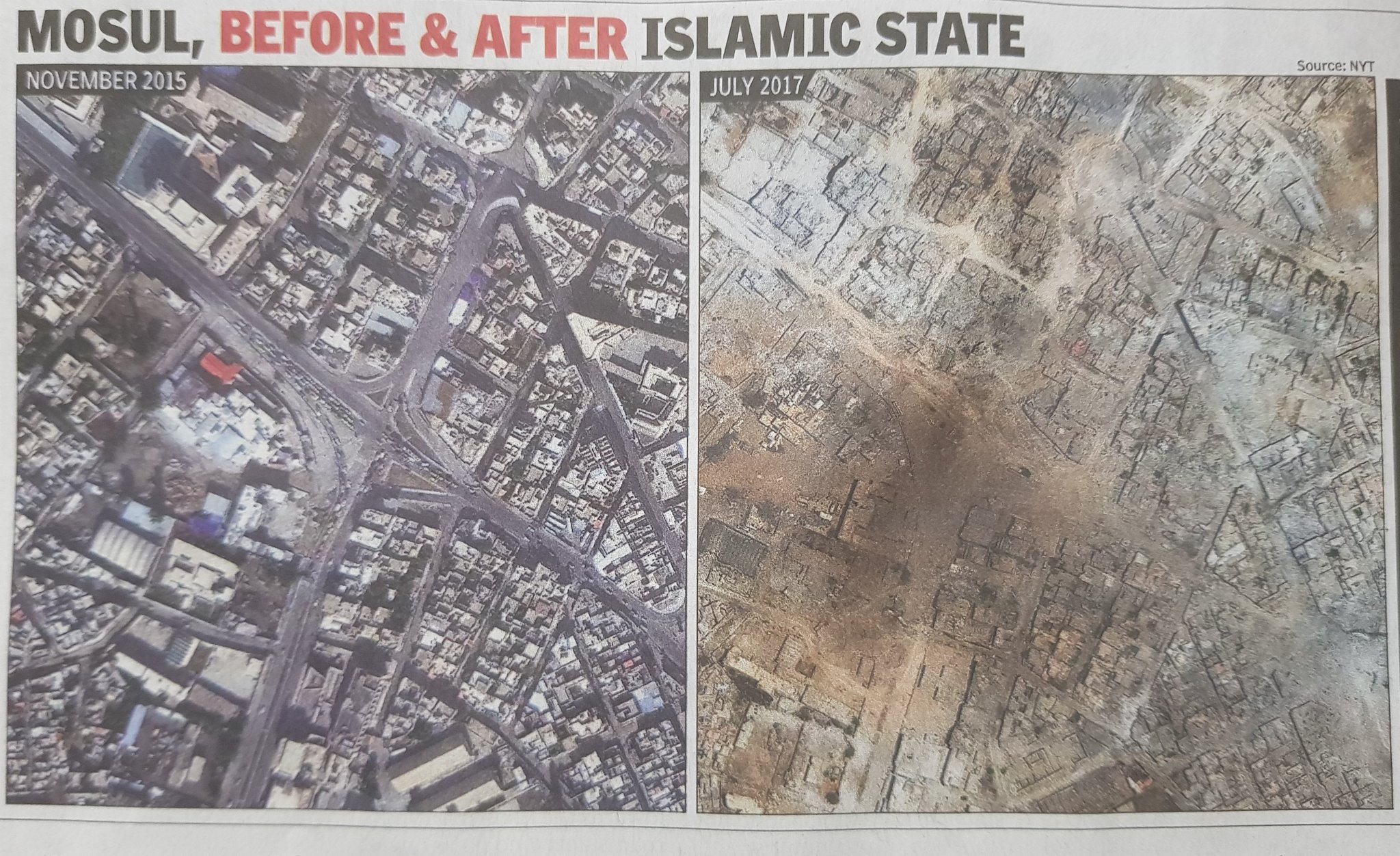
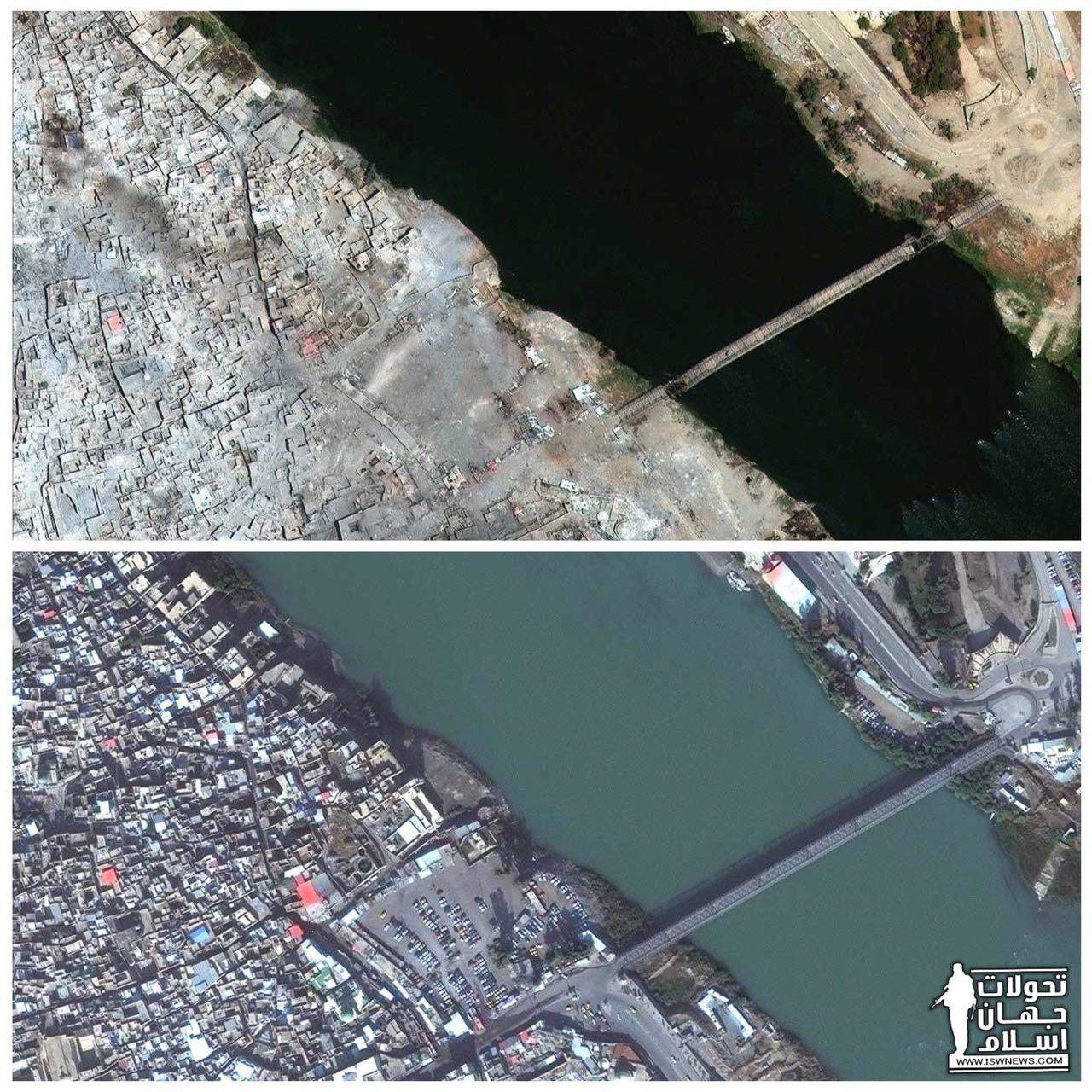
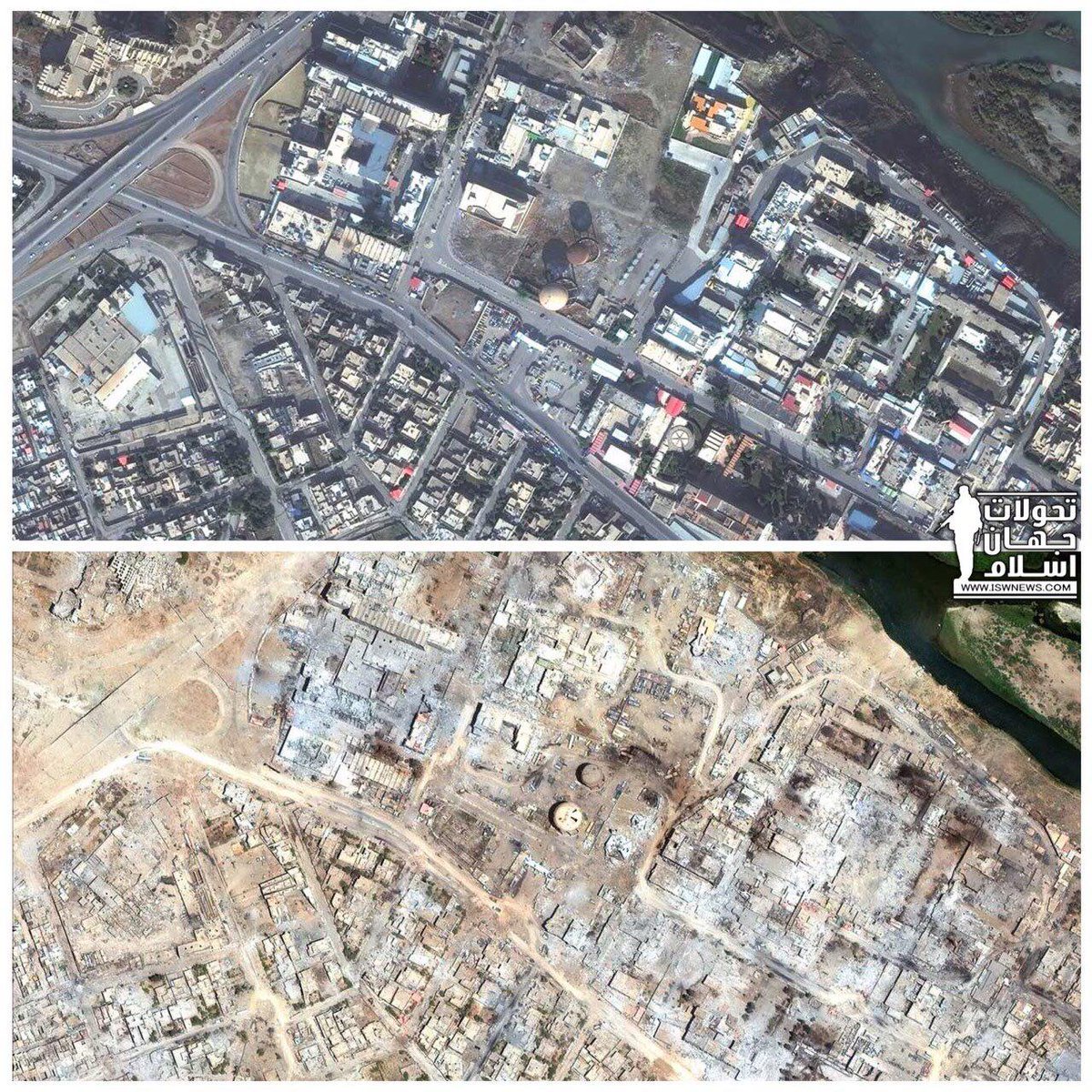
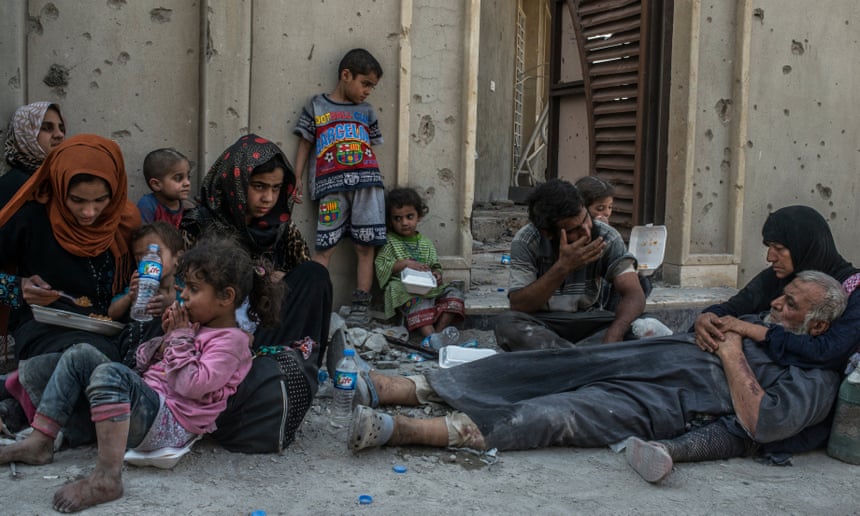
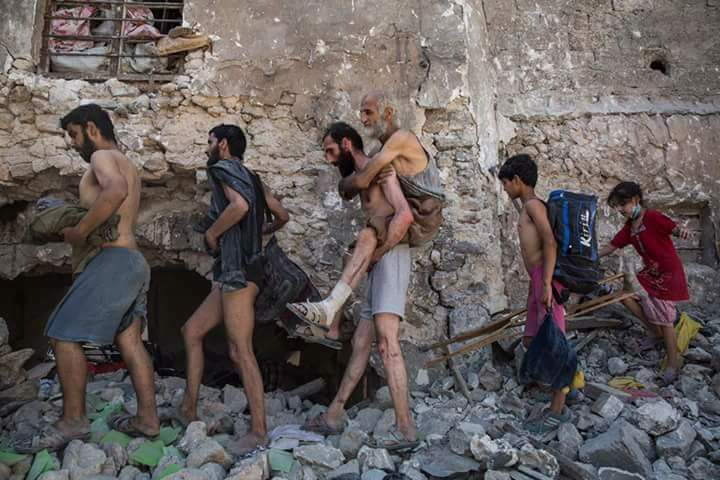
Mosul...
toddler walking amongst dead family/relatives

more images
https://apimagesblog.com/blog/2017/7/6/mosul-endgame-in-images-caught-by-airstrikes-islamic-state
brutality and savagery of war - Iraqi troops + irregulars and war crimes
NWS!!!
http://www.expressen.se/nyheter/exclusive-footage-reveals-brutal-war-crimes-in-battle-against-isis/
To undercut Iran, Russians pressure Assad to cut Syria’s longtime ties to Hezbollah.
http://www.washingtontimes.com/news/2017/jul/17/russia-pressures-bashar-assad-to-cut-syrias-hezbol/
Following up what I posted earlier, Idlib is now completely (and publicly) under Al-Nusra control.A documentary done by Jenan Moussa with the help of three pro-opposition undercover reporters about the life in Idlib, exposes many of the lies perpetuated repeatedly in the past few years.
Interestingly, it turned out only 6% of the checkpoints in Idlib actually belong to those who call themselves "FSA". Six percent. Over 50% are directly under the control of Al-Nusra itself, and over 70% are controlled by Al-Nusra and its subgroups/direct allies (so clearly those 70+% were merely being used as an excuse to target those "6%"...).
Anyway, highly recommend watching this documentary for people who want to know how the reality actually looks like in the "Free democratic Syria".
Jihadists on Sunday took Idlib in Syria after rival rebels withdrew, strengthening their grip over the northwestern city and its province, one of the last beyond regime control.
"Ahrar al-Sham withdrew from the city of Idlib which is now under the control of Hayat Tahrir al-Sham," Observatory head Rami Abdel Rahman told AFP.
"Hundreds of rebels left the city aboard dozens of vehicles heading towards southern Idlib province," he said.
Abdel Rahman said the HTS set up checkpoints across the northwestern city.
The fall of the city and provincial capital is symbolic.
It comes after the jihadists captured in a bloodless takeover "more than 31 towns and villages" across Idlib province over the past two days, the monitor said.
So where's the outrage?
Has the Middle East media not reported on this? Al Jazeera and those others?
I meant the Western media and politicians that were crying non stop about the plight of the people of eastern Aleppo when Russian airforce and SAA were fighting the rebels there. Mosul siege is on a different scale altogether yet you barely hear about it.
I call it a selective grief. Americans and their European allies only bring up these issues when it suits their agenda. That's the worst kind of hypocricy, because it involves life and death of thousands of innocent people.
Welcome to every media outlet on the planet. I really don't get the outrage when the West selectively reports things on its agenda. Every country does it and always will.
It calls their credibility into question. When they label one side (Russia, Syria) war criminals for doing exactly the same thing their own governments are doing in Mosul, it's kind of ah, face meet palm, moment.
As long as you're aware of it it's fine. There is no such thing as impartial media and there never has been.
Like night follows day, disaster follows small gains
Turkish army enters Kobanê Canton - UPDATE
The invading Turkish army has entered and deployed military forces in Rojava’s Kobanê Canton
https://anfenglish.com/rojava/turkish-army-enters-kobane-canton-21277
Not sure how reliable it is though.
I've now come across a good number of articles stating the alleged chief part of the Sykes-Picot agreement in determining the current state of the ME is actually a myth.This is something I've argued on here before. The way people talk about the so-called 'artificial borders', the only implication to be drawn is that they'd rather see purified ethnic/sectarian states in their place, which given the history of the region would be the most 'artificial' arrangement of them all. And that's setting aside the fact that most of the states in the region actually have some pre-colonial historical precedent which lends them legitimacy, and were created with a lot of input from local elites (this is something an increasing number of scholars are teasing out right now, especially in regards to Iraq, which is the classic case often given). These people can never outline what a 'natural' Middle East would look like.
I've now come across a good number of articles stating the alleged chief part of the Sykes-Picot agreement in determining the current state of the ME is actually a myth.
To me, all this is part of a huge general tendency to explain social conflict on ethnic and cultural terms. Something goes wrong somewhere? Not enough homogeneity! Most of the time it isn't even supposed to need any further proof, as many people think it's self-explanatory. It's really frustrating.
This is something I've argued on here before. The way people talk about the so-called 'artificial borders', the only implication to be drawn is that they'd rather see purified ethnic/sectarian states in their place, which given the history of the region would be the most 'artificial' arrangement of them all. And that's setting aside the fact that most of the states in the region actually have some pre-colonial historical precedent which lends them legitimacy, and were created with a lot of input from local elites (this is something an increasing number of scholars are teasing out right now, especially in regards to Iraq, which is the classic case often given). These people can never outline what a 'natural' Middle East would look like.
Israeli think tank: Don’t destroy ISIS; it’s a “useful tool” against Iran, Hezbollah, Syria
Head of a right-wing think tank says the existence of ISIS serves a "strategic purpose" in the West's interests
http://www.salon.com/2016/08/23/isr...ia/?utm_source=facebook&utm_medium=socialflow

The brutal fight to rid Mosul of so-called Islamic State has left the northern Iraqi city in ruins, thousands dead and survivors scattered far and wide. Just how much devastation was caused by the battle between Iraq’s forces - backed by US-led air strikes - and the militant group, and what will happen now?
While the battle for Mosul is over after nine months of fighting, its people are facing a humanitarian crisis on a catastrophic scale.
@antihenry brings up some valid points regarding hypocrisy here. Imo the destruction in both Aleppo and Mosul are deplorable.
Is anything left of Mosul?
